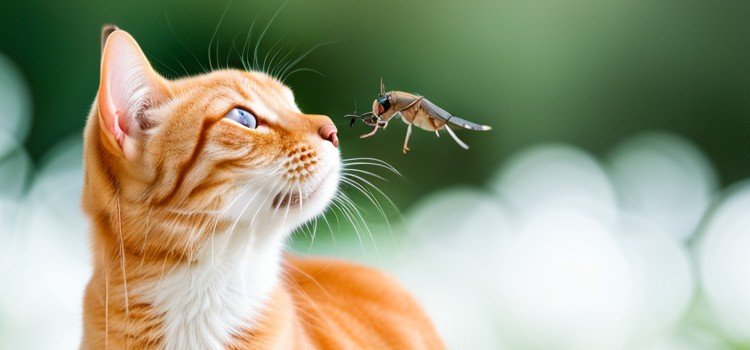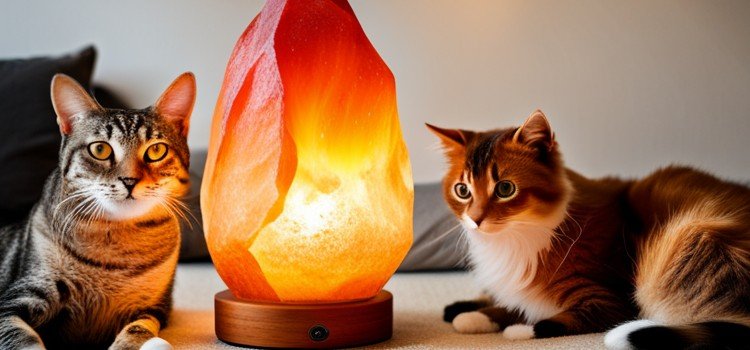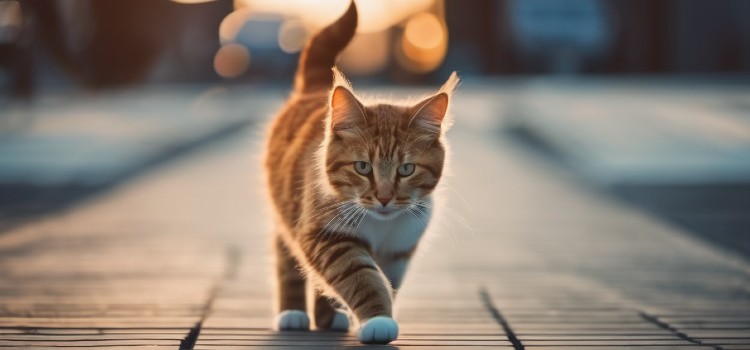As an Amazon Associate committed to the mission of improving the lives of our readers, Live-Clear.com receives a small commission from eligible purchases made through our affiliate links. This revenue enables us to keep producing insightful articles and other material.
Cats may bite their owner’s ear due to playfulness or affection. This behavior is common and can also be a result of overstimulation or fear.
As a cat owner, you may have experienced your feline friend biting your ear. You might wonder why they do this and if it means anything significant. Cats have different personalities, and they express themselves in diverse ways. Some cats may bite their owner’s ears during playtime, while others do it to show affection.
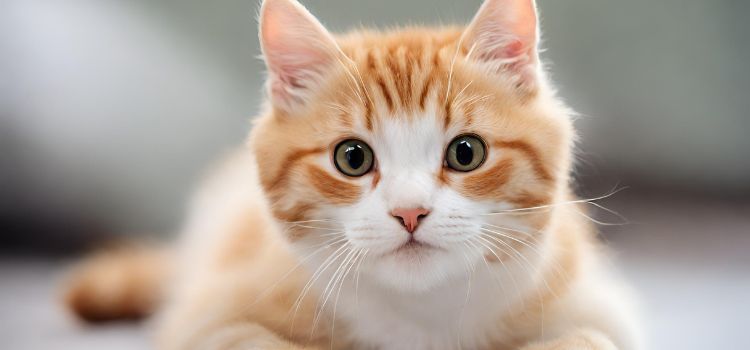
However, biting might also result from overstimulation or fear. We will explore why cats bite their owner’s ear, what it means and whether you should be concerned.
Cat Behavior: My Cat Bite My Ear
Cats are adorable and they give their owners great companionship, but at times they exhibit peculiar behavior different from what you expect. Your cat may come and bite your ear while you are asleep, playing with it, or even when sitting by your side. The behavior can be unpredictable and quite concerning. There could be a variety of reasons why your cat bites your ear, such as its natural instincts, playfulness, fear or aggression. Understanding why your cat acts the way it does can help you build a healthy relationship with it.
Understanding Cat Psychology
Cats are unlike dogs, and their behavior can be hard to predict. To understand why your cat likes to bite your ear, it’s essential to understand its psychology. Domesticated cats have retained some of the traits of their wild ancestors who used bites to communicate. Most cat behaviors are related to instincts from their wild ancestors, and this is why they may exhibit what seems to be perfect behavior.
Exploring Unique Behavior Traits
Cats have different personalities and traits, and this can influence why your cat likes to bite your ear. Some unique traits may include;
- Playfulness: Your cat may bite your ear to initiate playtime and draw your attention.
- Attention-seeking: At times, your cat may nibble on your ear to get your attention or ask for food.
- Affection: Cats are known to show affection in many different ways, and biting your ear may be a sign that your cat feels loved and comfortable around you.
- Aggression or fear: If your cat is feeling threatened or frightened, it may lash out and bite your ear.
- Health Issues: If your cat suddenly starts to bite your ears, it could be a sign of hidden pain or discomfort. Take your cat to the vet for a checkup.
It’s essential to observe your cat’s behavior and demeanor to determine why they exhibit specific behavior. Understanding your cat’s behavior can help you build a better relationship with your pet, and also make you aware of any negative behavior that needs to be corrected.
While a cat biting your ear can be uncomfortable or confusing, it is not always a sign of hostility. Be observant, understand their habits, and always use positive reinforcement methods to communicate. With patience and understanding, you can help your cat overcome any negative habits and become the loving companion you always wanted.

Communication Tactics: My Cat Bite My Ear
If you’re wondering why your cat bites your ear, it could be a form of communication. Cats use biting as a way to show affection, playfulness, or to assert dominance. It’s important to understand your cat’s body language and communication tactics to avoid misinterpreting their behavior and prevent any potential harm.
Communicating Through Body Language
Cats are known to be very expressive creatures, even without uttering a single word. Their body language is a powerful tool of communication. When a cat bites your ear, it could mean different things, depending on their body language at that moment. They could be scared, anxious, playful, or simply seeking attention. A cat’s ears, eyes, tail, and posture can all give clues to their emotional state.
Meowing: What They’re Saying
Meowing is a sound that domestic cats exclusively reserve for communicating with humans. When your cat meows, they are trying to tell you something. Here are some common meanings behind different types of meows:
- Short, high-pitched meows – a greeting or a request for attention.
- Multiple meows in a row – a demand for food or other needs.
- Gurgling or chirping noises – a sign of excitement or contentment.
Purring: The Ultimate Sign Of Feline Affection
Cats purr for a variety of reasons: when they are happy, content, nervous, or even in pain. However, when your cat is purring while they bite your ear, it’s usually a sign that they are showing affection. Purring is a comforting sound that cats make when they are feeling safe and secure in their environment, and they want to share that feeling with you. In conclusion, understanding your cat’s communication tactics can help you interpret their behavior and strengthen your bond with them. Always pay attention to their body language, meows, and purrs, and respond accordingly. Remember, a cat’s behavior is always a reflection of their emotional state.
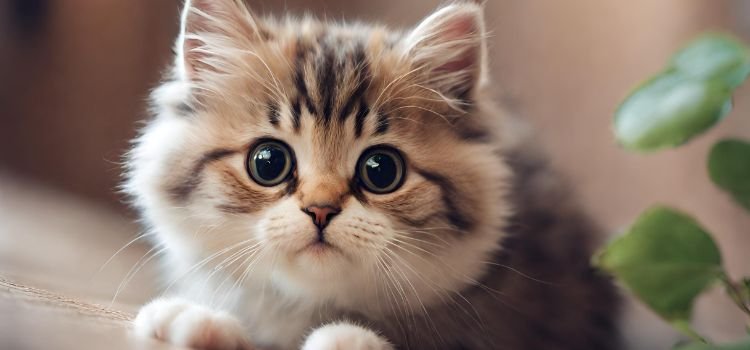
Ear Biting: My Cat Bite My Ear
Cats may bite their owner’s ears due to several reasons like affection, playfulness, or marking their territory. It could also be a sign of overstimulation or anxiety. It is important to observe their body language and understand the context to prevent negative behavior.
Why Cats Bite Ears
Cats are known for their quirky behavior, including ear-biting. While it may seem like your feline friend is just being playful, there are a few reasons why cats tend to bite ears. One of the primary reasons is that cats like to explore their environment through their sense of touch and taste. Ears offer an interesting texture, and your cat may just be curious about what they feel like. Another reason is that cats are predators by nature, and they tend to bite as a part of their hunting instinct. This behavior is more commonly seen in kittens and young cats who are still learning to play.
The Role Of Aggression
While ear-biting may seem harmless, it can sometimes be a sign of aggression. If your cat is feeling threatened or anxious, they may resort to biting as a means of defense. In some cases, cat aggression can also be a symptom of underlying health concerns, such as dental problems or flea infestations. It’s important to keep an eye out for any other signs of discomfort or distress in your cat, and seek professional help if necessary.
Playtime And Affection
It’s important to remember that not all ear-biting is aggressive or negative. In fact, it can sometimes be a sign of playfulness and affection. If your cat is biting your ear during playtime, it may be their way of showing that they’re having fun and enjoying your company. Similarly, if your cat nibbles on your ear during cuddle time, it may be a sign of affection and trust. In either case, it’s important to establish boundaries with your cat and make sure that their behavior is not becoming too aggressive or harmful. Overall, ear-biting is a relatively common behavior among cats and can be caused by a variety of factors.
By understanding the reasons behind this behavior, you can better communicate with your feline friend and ensure a happy and healthy relationship.

Solutions: My Cat Bite My Ear
If you are wondering why your cat bites your ear, there can be multiple reasons. Your cat might be showing affection, playing with you, or it might be a territorial behavior. It is essential to observe your cat’s body language and understand its behavior to prevent any unwanted bites.
If your cat is biting your ear, it can be a painful and uncomfortable experience. Often, it is a sign of love and affection, but it can also be a sign of aggression or stress. Fortunately, there are several solutions to this problem.
Training Cats To Curb Aggressive Behavior
One way to stop your cat from biting is to train them to curb their aggressive behavior. This involves positive reinforcement, where you reward your cat for good behavior and discourage bad behavior. Here are some tips to help you train your cat:
- Use a spray bottle filled with water to discourage bad behavior.
- Do not hit or yell at your cat.
- Use treats to reward good behavior, such as not biting or scratching.
- Provide your cat with toys and scratching posts to redirect their energy.
- Give your cat plenty of attention, but do not encourage rough play.
Finding Alternative Ways To Show Affection
Another solution is to find alternative ways to show affection to your cat. Often, cats bite because they want attention or affection. Here are some ways to show your cat that you care:
- Pet your cat gently, avoiding sensitive areas like the ears or tail.
- Give your cat treats or toys as a reward.
- Play with your cat using toys, but avoid using your hands or fingers.
- Provide your cat with a comfortable, cozy spot to sleep and relax.
- Give your cat plenty of space and time to themselves.
By following these solutions, you can teach your cat to stop biting your ear and show them the love and attention they need. Remember, training takes time and patience, so be consistent and persistent in your efforts. With time, your cat will learn to trust and respect you, and you will enjoy a happy and healthy relationship together.

Conclusion
Biting is natural feline behavior, and most cats enjoy playing and biting their owners. However, biting ears could be a sign of overstimulation, fear, or aggression. As a responsible cat owner, it’s crucial to understand your cat’s behavior and provide them with proper training and socialization.
Frequently Asked Questions On Why Does My Cat Bite My Ear
A cat purrs and bites ears to show affection or excitement. Purring is a sign of contentment, while ear biting can be interpreted as playful behavior or a sign that they want attention. It’s important to keep their biting gentle and not allow aggressive behavior to develop.
Your kitten may be trying to play or show affection by nibbling on your ear. Kittens explore the world with their mouths and may do this behavior habitually. Redirect their attention with a toy or playtime and discourage the behavior by not rewarding it with attention or treats.
Your cat might be grooming you for social bonding, showing affection, or seeking attention. It’s a sign of trust and love, and it’s perfectly normal behavior. However, if it starts to hurt or become excessive, it might be due to earwax, ear infection or some other underlying issue.
Cats lick and bite ears for various reasons such as attention seeking, grooming, or playful behavior. It’s a natural instinct of cats to display affection this way, and it’s usually harmless. However, if the biting becomes aggressive, it’s best to seek advice from a veterinarian.
Cats may nip ears to show affection, play or communication.
Learning your cat’s body language and providing them with enough playtime and mental stimulation can prevent ear biting. Remember, a happy and healthy cat is a joyful companion for life.
Amazon and the Amazon logo are trademarks of Amazon.com, Inc, or its affiliates.
